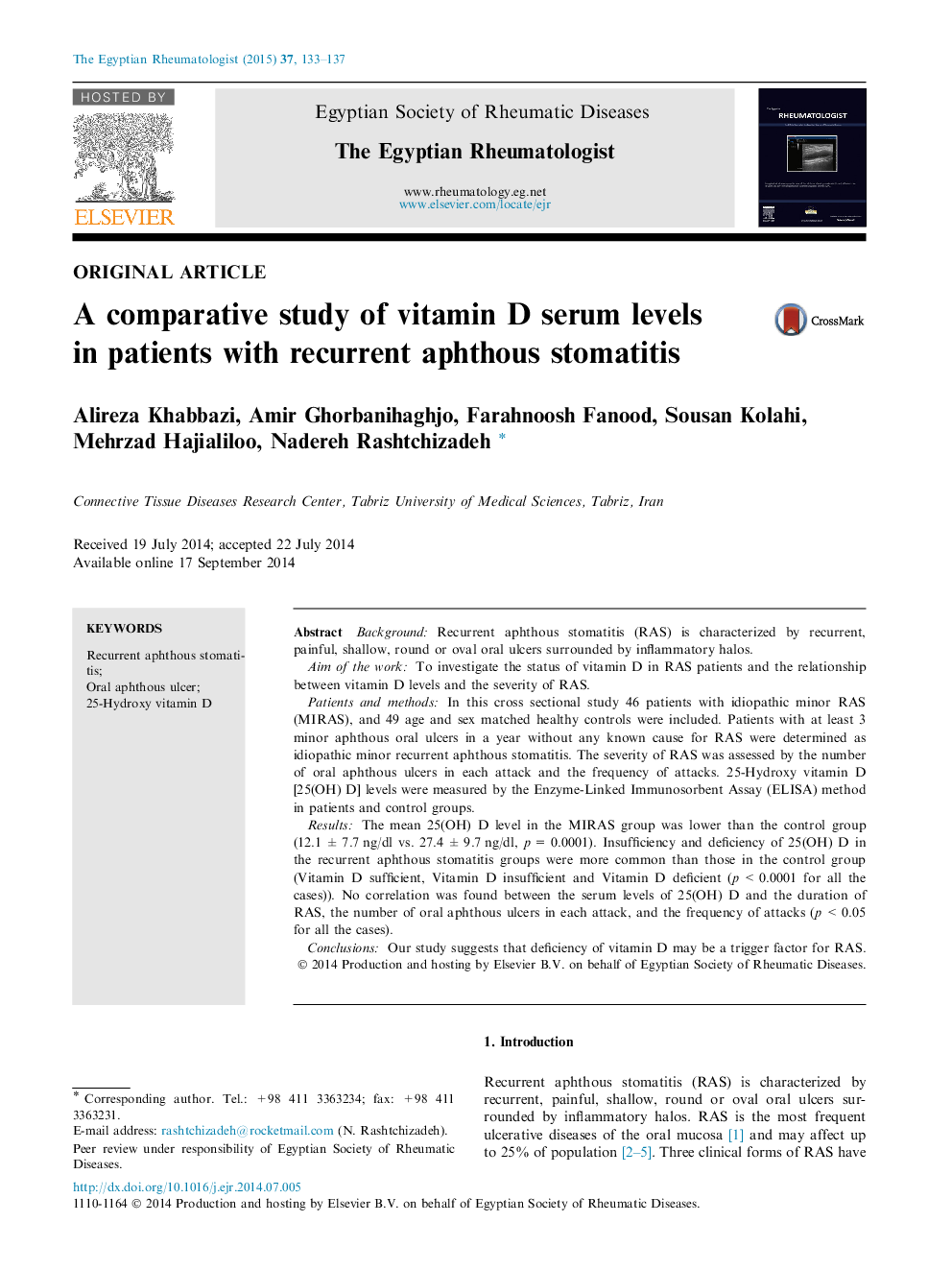| Article ID | Journal | Published Year | Pages | File Type |
|---|---|---|---|---|
| 3348944 | The Egyptian Rheumatologist | 2015 | 5 Pages |
BackgroundRecurrent aphthous stomatitis (RAS) is characterized by recurrent, painful, shallow, round or oval oral ulcers surrounded by inflammatory halos.Aim of the workTo investigate the status of vitamin D in RAS patients and the relationship between vitamin D levels and the severity of RAS.Patients and methodsIn this cross sectional study 46 patients with idiopathic minor RAS (MIRAS), and 49 age and sex matched healthy controls were included. Patients with at least 3 minor aphthous oral ulcers in a year without any known cause for RAS were determined as idiopathic minor recurrent aphthous stomatitis. The severity of RAS was assessed by the number of oral aphthous ulcers in each attack and the frequency of attacks. 25-Hydroxy vitamin D [25(OH) D] levels were measured by the Enzyme-Linked Immunosorbent Assay (ELISA) method in patients and control groups.ResultsThe mean 25(OH) D level in the MIRAS group was lower than the control group (12.1 ± 7.7 ng/dl vs. 27.4 ± 9.7 ng/dl, p = 0.0001). Insufficiency and deficiency of 25(OH) D in the recurrent aphthous stomatitis groups were more common than those in the control group (Vitamin D sufficient, Vitamin D insufficient and Vitamin D deficient (p < 0.0001 for all the cases)). No correlation was found between the serum levels of 25(OH) D and the duration of RAS, the number of oral aphthous ulcers in each attack, and the frequency of attacks (p < 0.05 for all the cases).ConclusionsOur study suggests that deficiency of vitamin D may be a trigger factor for RAS.
